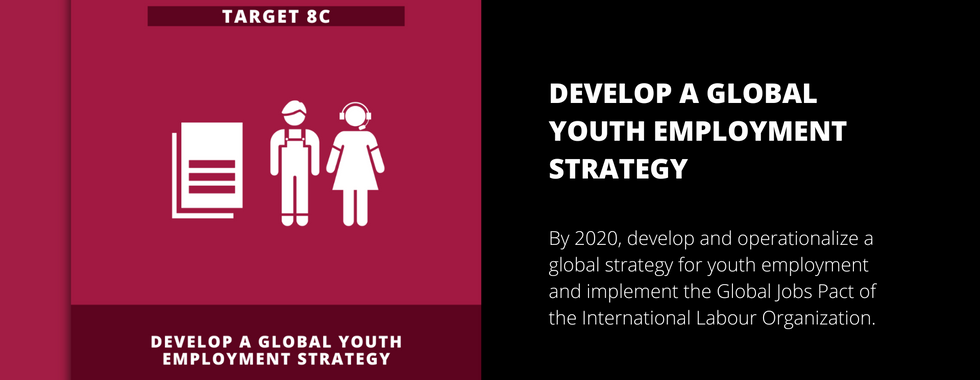Reduced Inequalities: Address Inequalities Within and Among Countries
- Veronica Spark

- Jan 10
- 3 min read
Updated: Feb 22

The world’s richest 10% earn more than 50% of global income, while the poorest 50% earn just 8%. Inequality—whether economic, social, or political—hinders sustainable development and limits opportunities for marginalized groups. Sustainable Development Goal 10 (SDG 10) aims to reduce inequality within and among countries, ensuring fair access to opportunities, resources, and social protections.
Inequality manifests in income gaps, discrimination, lack of access to education and healthcare, and unequal representation in decision-making. Addressing these disparities is crucial for building more inclusive and resilient societies.
Why Reducing Inequalities Matters
Reducing inequality benefits everyone by:
Promoting economic stability by creating fair opportunities for all income groups.
Enhancing social cohesion by reducing discrimination and marginalization.
Improving public health by ensuring equitable access to healthcare and services.
Encouraging inclusive policies that represent diverse voices and perspectives.
Fostering innovation by empowering underrepresented communities with resources and opportunities.
SDG 10: Reduced Inequalities Targets
SDG 10 outlines key targets to promote inclusion and equality worldwide:
Target 10.1: Reduce Income Inequality – Achieve income growth for the bottom 40% of the population at a rate higher than the national average.
Target 10.2: Promote Social, Economic, and Political Inclusion – Ensure equal opportunities regardless of age, sex, disability, race, ethnicity, origin, religion, or economic status.
Target 10.3: Ensure Equal Opportunity and Eliminate Discriminatory Policies – Remove policies and practices that reinforce inequalities.
Target 10.4: Adopt Fiscal and Social Policies to Promote Equality – Implement wage policies, social protection, and progressive taxation.
Target 10.5: Improve Financial Regulation – Ensure the stability and fairness of global financial markets.
Target 10.6: Enhance Representation of Developing Countries in Decision-Making – Increase the participation of underrepresented nations in global institutions.
Target 10.7: Facilitate Safe and Responsible Migration – Promote well-managed migration policies and protect migrants' rights.
Target 10.a: Implement Special Trade Treatment for Developing Countries – Support economic growth in developing nations through preferential trade agreements.
Target 10.b: Encourage Development Assistance and Investment in Low-Income Countries – Mobilize financial resources to support least-developed countries.
Target 10.c: Reduce the Cost of Migrant Remittances – Lower transaction costs for remittances sent by migrant workers.
The Role of Social Entrepreneurs in Reducing Inequalities
Social entrepreneurs are leading the charge in reducing inequalities through innovative solutions. Their contributions include:
Expanding Economic Opportunities – Creating fair-wage jobs and supporting marginalized entrepreneurs.
Enhancing Access to Education – Developing inclusive learning programs for underserved communities.
Improving Financial Inclusion – Offering microfinance, digital banking, and affordable credit options.
Advocating for Policy Change – Working with governments to create equitable policies.
Promoting Inclusive Technologies – Designing tech solutions that bridge digital divides and empower marginalized groups.
Examples of Social Enterprises Advancing SDG 10
1. Kiva – Microfinance for Underserved Entrepreneurs
Kiva provides microloans to small business owners and entrepreneurs who lack access to traditional banking, enabling economic empowerment.
2. Hand in Hand International – Job Creation for Marginalized Communities
This organization helps individuals in low-income regions build sustainable businesses through entrepreneurship training and support.
3. Bitnation – Decentralized Identity and Financial Services
Bitnation uses blockchain technology to provide legal identities and financial services to stateless individuals and refugees.
4. Pro Mujer – Empowering Women Through Financial Services
Pro Mujer offers women in Latin America access to healthcare, business training, and microfinance, enabling economic independence.
5. Refugee Investment Network – Funding Displaced Entrepreneurs
This initiative connects investors with refugee-led businesses to promote financial stability and economic inclusion.
Conclusion: A More Equitable Future
Achieving SDG 10 requires systemic change to ensure that everyone, regardless of background, has equal opportunities to thrive. Social entrepreneurs are vital in this mission, using innovation and inclusivity to close gaps in income, education, and political participation.
By supporting and investing in social enterprises committed to reducing inequalities, we can build a world where everyone has the opportunity to succeed, regardless of their circumstances.





























